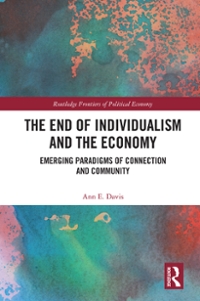As the number of times you compound the interest per year increases, the interest also increases. However, it will never be greater than the following formula for "continuous" compound interest:
rt
A=Pe
Use the compound interest formula and the continuous compound interest formula to answer the following question:
You just won $150,000 in the lottery and you decide to invest the money for 20 years to save for your retirement. However, you only get to choose one of the 4 options below. Which one would you pick and why?
A certificate of deposit paying 5.4% interest compounded annually?
A money market certificate paying 5.35% interest compounded semi-annually?
A bank account paying 5.3% interest compounded monthly?
A bank account paying 5.25% interest compounded continuously?
B. Regarding compound interest, take the interest rate annually and determine the interest period yourself. (for example, every 3 months, every 50 days ....) Derive and answer a question regarding the calculation of the term (11) and interpret it. C. Derive a question that you will calculate future value (S) on compound interest. Also nd and interpret the \"effective interest rate" of this example. D. In a question about internal discount, nd the calculation of the nominal value (S) and the cash value (Pi). (In this question, please take the interest annually and take the interest cycle as 4-month or 20-day, please resolve and comment.) Section 6. 1/6.2 Simple and Compound Interest P Score: 15.8/21 21/21 answered X Question 15 Score on last try: 0 of 1 pts. See Details for more. > Next question You can retry this question below Find how much money needs to be deposited now into an account to obtain $9,500 (Future Value) in 6 years if the interest rate is 7.5% per year compounded annually (1 times per year). The final amount is $ 0.075 X Round your answer to 2 decimal places Question Help: DVideo Submit QuestionO QUESTION 3 Jason has $100,000 to invest in a savings account. He has two options: Option A earns 4% interest compounded quarterly, and Option B earns 3.994 interest compounded continuously. Which account will be more valuable after 10 years? O Option A O Option B QUESTION 4 These two questions Jason has $100,000 to invest in a savings account. He has two options: Option A earns 49% interest compounded quarterly Option B earns 3.99% Interest compounded continuously. How much more money will be in the more valuable account after 10 years? Send a chat Click Save and Submit to save and submit. Click Save All Answers to save all answers. Saye All OScore on last try: 0 of 6 pts. See Details for more. > Next question You can retry this question below For the compound interest loan whose terms are given below, due at the end of the specified time. Principal: $8700 Interest rate: 5.2% Compounding: Monthly Time: 1 years Future value: $ Enter an integer or decimal number [more.] Question Help: () Video ( Message instructor Submit QuestionFor the extensive-form game depicted below A Player 1 B N Player 2 L R L R 3 1 -2 3 (a) Write down the normal-form of the game. (b) Find all pure strategy NE of the game. (c) Find all subgame perfect NE of the game











